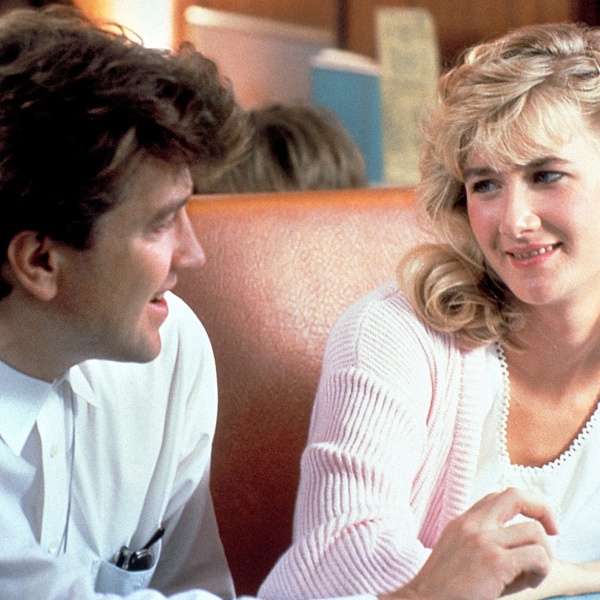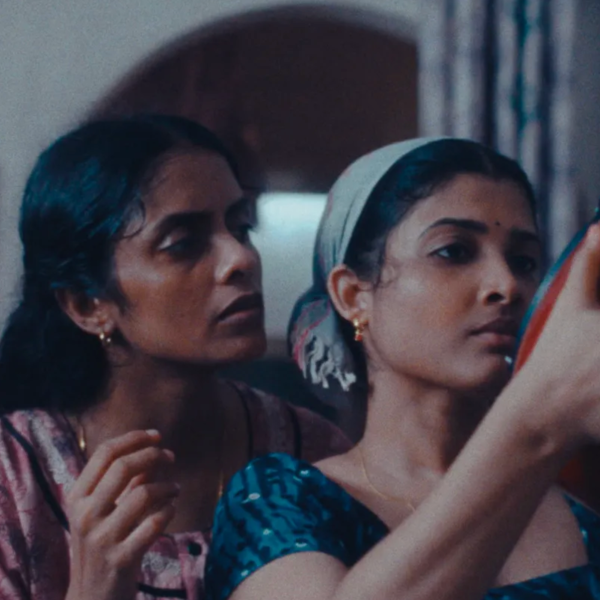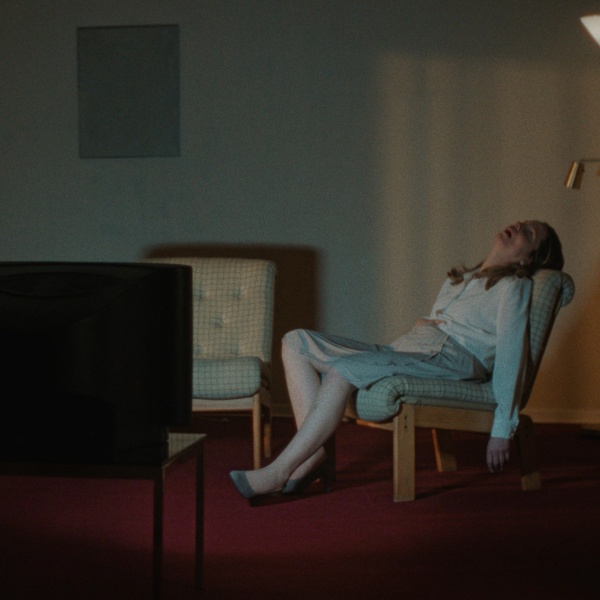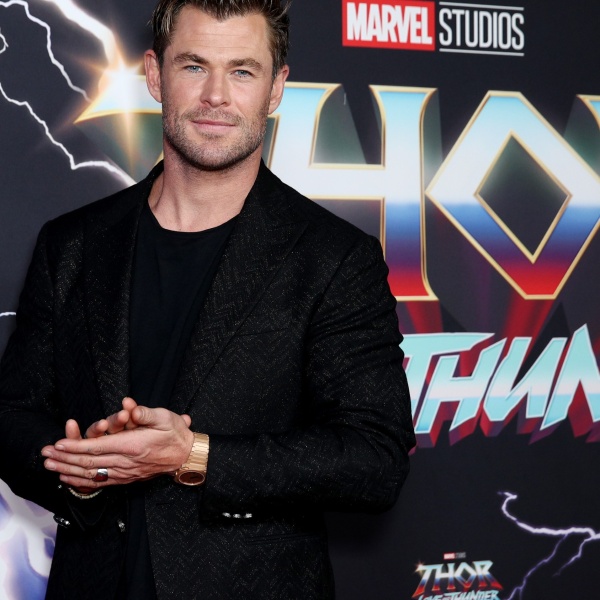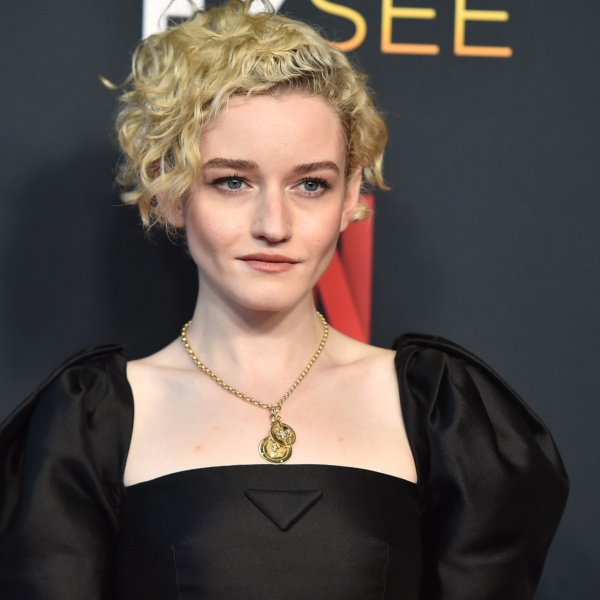
With a team stretching and reaching around the world with editors and writers in the United States, Canada, UK, Australia and beyond, getting a consensus on the top ten films of the year from the entire Playlist team is pretty much impossible. Not everyone has had a chance to see the majority of the films from this year yet, and tastes and preferences differ from writer to writer. Instead, the editors and writers will be presenting their individual lists for the year.
Looking back, 2010 was an interesting year for film. The Cannes Film Festival had its weakest lineup in years and as the unofficial launch of the movie year and the festival circuit it was a soft foot on which to kick things off. However, it seemed that American indie films were waiting in the wings to pick up the slack. It was a strong year for independent films, which is definitely reflected in my top ten list, as only three of the ten films are from a major studio (thought that’s also to be expected considering dramas aren’t high on the priority list for tentpole-driven studios). And while this was a year marked with many memorable film moments (as our recent feature will attest), these ten films are those that stood out from the pack. Ambitious visions and/or a deep emotional core seemed to be the touchstones for films that found their way onto my top ten list this year. Other than “True Grit,” there are no real genre films the bunch, instead, these are pictures that boast character and story, invention and imagination and for me, represent the best of what 2010 had to offer.
 10. “Greenberg” dir. Noah Baumbach
10. “Greenberg” dir. Noah Baumbach
This was a contentious one among The Playlist, one that pretty much split the team down the middle. But for this writer, Noah Baumbach’s tale of midlife malaise hit all the right notes. Unlike “Margot at the Wedding,” which couldn’t seem to overcome the hump of its desperately detestable characters, the titular Greenberg (Ben Stiller) is, yes, a self-absorbed, resentful asshole but he’s also strangely relatable. His lingering grudges and disappoints, that keep his life stagnating and as a result cause him to lash out at those around him, are well drawn and real. “Greenberg” is a tough and complicated little pill to swallow, asking you to see through the near-redemption of character who doesn’t deserve half the kindness around him. But the story is worthy, and its a gently stirring journey. Baumbach doesn’t judge Greenberg, but more bravely, tries to understand him even at his worst and perhaps this is why the film never get got a better foothold with audiences or critics.
 9. “The Kids Are All Right” dir. Lisa Cholodenko
9. “The Kids Are All Right” dir. Lisa Cholodenko
Somehow, a backlash of sorts of is developing against one, with some people claiming it’s an agenda driven movie (huh?) but focusing on the lesbian aspect of the relationship central to the film is missing the point completely. Yes, Julianne Moore and Annette Bening play lesbians with two kids, but the film is not at all about their sexuality but instead about any longterm relationship — straight or gay — where for no real reason, routine and familiarity dull the once bright flame of passion. Enter Mark Ruffalo, perfecting his aloof, sexy, rugged everyman persona for the ages as the mystery sperm donor who is uncovered thanks to the persistence of daughter Joni (Mia Wasikowska). What could’ve turned into a very special episode of “Dr. Phil” instead becomes rich portrayal of a modern family and the flaws that both make us human and endear us to the ones we love.
 8. “The Social Network” dir. David Fincher
8. “The Social Network” dir. David Fincher
To be certain, there are valid knocks to be made against “The Social Network”: character development is non-existent as are the ladies, and the film sticks rigidly to a courtroom procedural structure. But when you pair David Fincher with a crackling script by Aaron Sorkin, chances are you’re going to get something special, and the duo pushed aside the minor flaws inherent in the approach and delivered one of the most undeniably entertaining films about a website you are likely to see. The brilliance of the film is that it avoids getting bogged down and tech talk and when it does, as in the early opening sequence about the creation of FaceMash, Fincher practically turns it into an action sequence with Sorkin’s dialogue as the bullets. Instead, the film’s biggest overreaching arch is about the cost of the moral and personal sacrifices made in face of ruthless ambition. There is something frightening here about these young A-type personalities, our future technology leaders, waging war on keyboards with seemingly no limits to what they’ll do to earn their place on the top of the heap. And say what you will about Fincher’s approach of endless takes but he got a career defining performance out of Jesse Eisenberg, uncovered a remarkable newcomer in Armie Hammer and discovered America’s next young A-list leading lady in Rooney Mara who has graduated to toplining “The Girl with the Dragon Tattoo.” The talent is remarkable, the execution seemingly effortless; “The Social Network” is far more worthwhile than the actual website that its all about.
 7. “Another Year” dir. Mike Leigh
7. “Another Year” dir. Mike Leigh
Somewhat thematically similar to “127 Hours,” Mike Leigh’s leisurely “Another Year” takes the subject of human connectivity and approaches it from a slightly different angle. The film chronicles the small moments and events in the life of retirement age couple Tom and Gerri, and tells the story of the friends and relatives that orbit their world. It seems everyone around them is struggling to find love and companionship, most of all Mary, a work colleague and friend of Gerri who seems perpetually unable to get herself together. Moving gently through the four seasons of the year, we see how in just twelve months even the seemingly slightest of actions can leave a monumental consequence. If Jim Broadbent and Ruth Sheen as the central figures in the story are the anchor, Lesley Manville, in an achingly tender performance is the film’s true emotional core. Her desperation not just to find someone share her life with but to see something special in her is agonizing and heartbreaking, but as Leigh’s film gently notes, if things are tough now, not to worry, another season is around the corner and anything can happen.
 6. “Animal Kingdom” dir. David Michôd
6. “Animal Kingdom” dir. David Michôd
While Ree’s family in “Winter’s Bone” is a strong contender, the Cody family in the wickedly twisted Australian crime thriller “Animal Kingdom” is likely the most dysfunctional, fucked up family unit to hit screens this year. The Cody clan are career criminals who have become enemy number one to the local police and as the net slowly closes in, feelings of distrust and paranoia are raised as loyalties become put to the test. The feature film debut by David Michôd is blessed with a trio of breakout performances led by Jacki Weaver as the conniving family matriarch, Ben Mendelsohn as her unpredictable son Pope and James Frecheville as J., the youngest of the clan who is trying to figure out what side will survive the coming reckoning. The film never lacks in surprises, seeming to deliver a new twist every twenty minutes and the pace never lags; simply put, “Animal Kingdom” presents the Cody family food chain and lets us watch as they devour each other.
 5. “True Grit” dir. The Coen Brothers
5. “True Grit” dir. The Coen Brothers
Who would’ve thought that the Coen Brothers’ most heartfelt film since “Fargo” would be a straight up western? A close adaptation the Charles Portis novel that swings the focus of the film to the young Mattie Ross (unlike the 1969 film which zeroes in Rooster Cogburn), “True Grit” keeps the Coens’ penchant for odd argot but dials down the eccentricity. The result is a straight up vengeance pic that acts as an act of mourning for the young Mattie, determined to see justice done in a world where the line between the law and outlaw is constantly shifting. While it’s no surprise that Jeff Bridges, Matt Damon and Josh Brolin are all solid in their roles, the film’s beating heart belongs to the remarkable feature film debut by Hailee Steinfeld. She embodies Mattie as a tough but sensitive whippersnapper, years beyond her age in fearlessness but not experience. Ruthlessly entertaining but also emotionally satisfying, the Coens have conquered yet another genre with unparalleled skill and it leaves me wondering if there is anything they can’t do.
 4. “Inception” dir. Christopher Nolan
4. “Inception” dir. Christopher Nolan
Brains, brawn and Christopher Nolan combined for the best summer blockbuster of the year that also happens to be one of 2010’s finest films. Not based on a comic, tween novel, toy or video game, “Inception” was birthed from the fertile mind of the director, a twisty dream world film that served thrills just as large as its narrative ambitions. When was the last time a major studio released a film in which at the movie’s highest point, there are four layers of story happening at the same time? But leave it Christopher Nolan to not only keep the the focus of the story straight, but to additionally make it engaging and exciting. The pleasures of the film are many: Tom Hardy, the hallway fight sequence, the much talked about ending but let’s make sure we don’t forget that “Inception” also inspired the funniest movie related internet meme of the year.
 3. “Black Swan” dir. Darren Aronofksy
3. “Black Swan” dir. Darren Aronofksy
Cited by Darren Aronofsky as a companion piece to “The Wrestler,” it’s easy to see how that comparison can be made. If “The Wrestler” focused on Mickey Rourke‘s ravaged body after a long career taking a pummeling in the ring, “Black Swan” flips the equation, zeroing in on the fragile psyche of a dancer struggling to hit perfection. Darren Aronofsky’s film was one of the most wildly original and uniquely entertaining pictures to hit cinemas this year. The audience I saw it with laughed, gasped and were held rapt by the film’s ambitious reach that mixed psychological terror, paranoia, untamed sexuality and stage mom hysterics in something bracingly astounding, a tour de force of dazzling visuals playing against wickedly tight narrative that never wavered even through its boldest choices.
 2. “Blue Valentine” dir. Derek Cianfrance
2. “Blue Valentine” dir. Derek Cianfrance
In development for years, rehearsed and shot with a freedom that only an indie production graced with the goodwill of its principal players could ever afford, Derek Cianfrance’s “Blue Valentine” is one of the most honest portrayals of a relationship quickly fraying at the edges to come along in a while. Ryan Gosling and Michelle Williams solidified their place in Hollywood’s premiere league of young actors, giving two career best performances that run the gamut from the heady, blissful days of a new romance to the harrowing final days of its ugly demise. Intimate and raw, honest and real, for anyone whose been in the midst of a relationship as it deconstructed, the film will hit an uncomfortably real note. Though technically the second film by Derek Cianfrance, “Blue Valentine” marks his arrival and marks an impressive notch in his short resumé — one that shouldn’t remain that way for too long.
 1. “127 Hours” dir. Danny Boyle
1. “127 Hours” dir. Danny Boyle
When I first saw the film at TIFF, the conditions were certainly not ideal. Due to some technical difficulties, the screening was delayed for nearly two hours and then eventually moved to a smaller cinema. Already festival weary and exhausted, it speaks to the power of Danny Boyle’s film that it snagged a hook in me and didn’t let go for a moment. Shot, edited and paced with a wiry, nervy energy “127 Hours” isn’t just about “that moment” but weaves a bigger picture story about one man who not only fights for his survival, but who yearns to embrace human connectivity, a value he’s taken for granted. The film’s other secret weapon is a surprisingly rich and wide-ranging turn by James Franco, who lands easily the most challenging role of his career and turns out be an utter revelation and easy frontrunner at the upcoming Oscars (which he’s also co-hosting). And while much of the film’s press and marketing has centered on the arm cutting scene, for this writer, the film’s real pull is the rousing moments once the act is done and Aron Ralston stumbles out of the crevice to find help. As Sigur Ros‘ “Festival” swells, when Aron yells “I need help” it’s not just a plaintive cry of someone seeking medical attention, but also an acknowledge that we can’t make it in this world alone. The film pretty much left this writer as a pile of mush and when I saw it again a couple of months later, the impact was still just as strong and deep.
Honorable Mentions: Where are all the foreign films? Yes, this list is certainly noticeably bereft of non-English language films but unfortunately “The Secret in Their Eyes,” the excellent Argentinian Best Foreign Film Oscar winner, is technically a 2009 film but it certainly would’ve broken through into my top ten. The same goes for “A Prophet” and “Mother,” two very strong films that most audiences didn’t see until this year. The last ten minutes of “I Am Love” are easily my favorite cinematic moment of the entire year and the film itself is beautifully sweeping and opulent. “Winter’s Bone” marked the arrival of Jennifer Lawrence, and the gritty Ozarks tale impressed with its tough-as-nails characters still haunted months later. “The American” is simply the kind of movie they don’t make anymore. Quiet, smart, beautiful and meditative, this tale of morally conflicted assassin is one of the year’s small treasures that I’m sure will gain a cult status in years to come. Speaking of which, “Scott Pilgrim vs. the World” has pretty much already earned that status, with the vibrantly alive and inventively filmed picture already becoming an group audience fave. A tip of the hat to Tony Scott for “Unstoppable.” He took a pretty simple, stupid premise and made it far more involving and entertaining than it deserved to be. “Easy A” was a total charmer through and through and while the props for Emma Stone are well deserved, Stanley Tucci and Patricia Clarkson are the unsung comedic heroes of the film. Matt Reeves delivered an utterly brilliant remake with “Let Me In,” a film more focused and heartfelt than the original (sorry guys, it’s true). “The Disappearance Of Alice Creed” was devilish B-movie fun, and a much more fun single-setting film than “Buried.” “Please Give” is the great indie film everyone ignored, boasting a quartet of strong female characters and performances in a sharply written, original tale by Nicole Holofcener. “Simon Werner A Disparu” is this year’s best film without distribution (I caught it at Cannes), a clever mystery that is also a sharply observed exploration of the unspoken structure of high school social groups. “Henri-Georges Clouzot’s Inferno” is this year’s best documentary about the movies, an endlessly fascinating film about the Henri-Georges Clouzot‘s ambitious and failed attempt to change the language of cinema with his visually dazzling tale of jealously — the outtakes featured in the film alone are a marvel. How did “Rachel” disappear from the landscape? It played for about a week in my city and then disappeared. A heartbreaking, infuriating documentary about activist Rachel Corrie who was killed trying to stop Israeli bulldozers from razing homes; a brave, bold film by Simone Bitton.
Memories: The Fantasia Film Festival showing of “Scott Pilgrim vs. the World” was one of the most infectious, enthusiastic screenings I’ve ever been to. From the opening moments of the 8-bit Universal logo to the final post-credits scene, I’ve never been with an audience as loud or appreciative, as the cheered along with every battle Scott Pilgrim won, and laughed and clapped with every witty line (often drowning out the follow up quips). That was a total blast. On the other end of the spectrum, it was a real treat to see “The Panic In Needle Park” from a beat up 16mm print in a loft with a semi-private movie club. A small room with about forty seats, with Pabst Blue Ribbon and pulled pork sandwiches being passed around, it was a charming way to watch Al Pacino hustling his way through 1970s New York City. A showing of the Erich von Stroheim‘s “restored” epic “Greed” utilizing a plethora of film stills to fill in the gaps was a remarkable experience; the breadth and scope of the film is breathtaking. And a screening of Theodoros Angelopoulos‘ “Landscape In the Mist” was an experience both good and bad. Good because the it’s out of print on DVD and it was a rare chance to see it on the big screen (great film, btw). Bad because of the trio of Olds beside me who couldn’t keep stop nattering, once again making my case that it’s actually older audiences that are the worst for talking through movies.
Disappointments: “The King’s Speech” boasted strong performances from all involved, but I never could quite get the behind the plight of a monarch and the film’s rousing, triumphant tone never quite connected. And while the performances in “The Fighter” are excellent — Christian Bale has never been better — I felt the film peaked narratively and emotionally with the second-to-last Sanchez fight, the true moment when Micky Ward convinced himself and his town that he was contender. Also, I never quite got with “The Red Riding Trilogy” a strongly acted triptych of films that is also unfortunately imbued with a pulpy, increasingly over-the-top storyline that is never quite believable. And “Never Let Me Go” was a gorgeously shot, solid acted film that was also strangely cold and uninvolving — but I still hope it isn’t too long before Mark Romanek mounts his next project, because I think he’s not far away from making a brilliant picture.
The Walk Outs: Though I generally take a stand against walking out of movies — and believe me, I sat through dreck like “When In Rome,” “The Last Airbender” and “Grown Ups” from start to finish — the rule is bent during a film festival. During a festival jaunt, I generally slog it out with an average of three or four films per day so having a moment to rest my brain, get some food and actually do some writing is very, very valuable. Thus the barometer for sitting through terrible movies is slightly lowered and a couple of films this year simply couldn’t hack it. Tom Tykwer‘s utterly ridiculous love triangle drama “Three” already had a strong handful of people headed for the aisle during its first hour, and soon after I joined them after a ludicrously straightfaced handjob scene that was as laughable as the rest of the soap opera shenanigans in the film. Meanwhile, “Love Crime” with Ludivine Sagnier and Kristin Scott Thomas barely made it past the starting gate with me with its musty tale of inter-office sexual politics that seemed leftover from the 1980s. Bleh.
